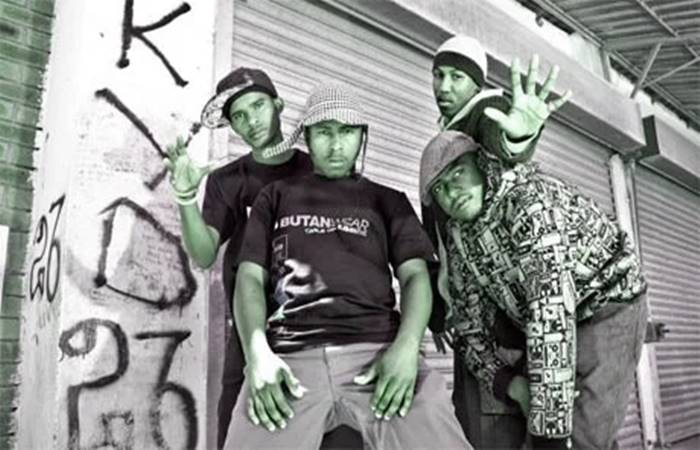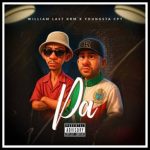
Hip hop has long been a powerful voice for marginalized communities, originating in the streets of the Bronx, New York, in the 1970s. The genre was born from the struggles of African American and Latino youth, combining rap, breakdancing, DJing, and graffiti into a cultural movement. Over the years, hip hop has evolved into a global phenomenon, with South Africa being one of the many countries where the genre has taken root.
However, with this global spread comes the issue of cultural appropriation—when individuals or groups from one culture adopt elements of another culture, often without understanding or respecting the original significance. In South Africa, where the genre has grown exponentially, questions around cultural appropriation in hip hop have emerged. How can artists, especially those who are not part of the culture’s origins, engage with hip hop in a way that honors its history and roots?
In this article, we explore the delicate balance between cultural appreciation and appropriation in hip hop, particularly in the context of South Africa’s unique musical landscape.
RELATED: Afrobeats Revolution: Exploring the Genre’s Roots and Modern Evolution
What is Cultural Appropriation in Hip Hop?
Cultural appropriation occurs when people from outside a culture borrow elements from that culture—such as language, music, fashion, or symbols—without proper acknowledgment or understanding. In hip hop, this is often seen when non-Black or non-Latino artists adopt styles of rap, clothing, or slang that are deeply rooted in African American history and identity.
The conversation around cultural appropriation in hip hop is not new. However, as the genre has become more commercialized and globalized, the lines between cultural appreciation (a respectful engagement with another culture) and appropriation have often been blurred. In the context of South Africa, where hip hop is a major part of youth culture, it is crucial to understand how to engage with the genre in a way that respects its origins while allowing for local creativity.
The History of Hip Hop in South Africa
Hip hop made its way to South Africa in the early 1980s, coinciding with the rise of political movements against apartheid. The genre quickly became a form of resistance and expression for disenfranchised Black youth. South African hip hop artists such as Prophets of da City (POC) and Black Noise used rap to address socio-political issues, drawing parallels between the struggles of African Americans and those facing apartheid in South Africa.
Today, hip hop is one of the most popular genres in South Africa, with local artists blending elements of traditional African music with the beats and rhymes of hip hop. South African rappers like AKA, Cassper Nyovest, and Nasty C have gained international recognition, contributing to the global growth of the genre. However, as the genre has grown in popularity, concerns about cultural appropriation have also surfaced.
Cultural Appropriation vs. Cultural Appreciation in South African Hip Hop
In South Africa, where hip hop has been embraced by various communities, the question of appropriation becomes complex. While the country has its own unique relationship with the genre, South African artists must remain conscious of the cultural origins of hip hop and avoid co-opting its symbols and language in a disrespectful or superficial way.
Cultural Appreciation:
Appreciation involves recognizing the cultural roots of hip hop and respecting the historical context from which it emerged. This includes acknowledging the struggles of African American communities, from which hip hop was born, and using the platform to address relevant social and political issues in one’s own community. Many South African artists do this by incorporating local struggles, languages, and music into their work.
Cultural Appropriation:
Appropriation, on the other hand, occurs when elements of hip hop—such as its slang, style, or music—are taken out of context and used in a way that dilutes their original meaning. This often happens when non-Black or non-indigenous artists adopt hip hop aesthetics without understanding the history or struggles that gave rise to the genre.
Examples of Cultural Appropriation in Hip Hop
- Fashion: Hip hop fashion, including baggy clothing, gold chains, and sneakers, has become a global trend. While it may seem harmless, non-Black individuals adopting these styles without understanding their significance in Black culture can be seen as appropriation.
- Slang and Language: Hip hop is known for its unique language and slang, much of which comes from African American Vernacular English (AAVE). When non-Black artists or fans use AAVE without respecting its cultural context, it can feel like an erasure of the culture that created it.
- Music and Beats: In South Africa, local hip hop artists often incorporate traditional African instruments and rhythms into their music. However, borrowing elements from African American hip hop, like trap beats, without acknowledgment can be seen as cultural appropriation.
How South African Artists Can Respect the Roots of Hip Hop
While hip hop has become a global genre, it is essential for artists, especially those from outside the African American and Latino communities, to approach the genre with sensitivity. Here are some ways South African artists can respect the roots of hip hop:
- Acknowledge the Origins: Always recognize that hip hop originated as a form of resistance and expression for marginalized communities, particularly African Americans. Understanding this history is crucial to creating meaningful hip hop music.
- Address Local Issues: Use hip hop as a platform to address social and political issues in South Africa. Many South African artists do this by tackling issues such as poverty, inequality, and corruption in their lyrics.
- Collaborate with Diverse Artists: Collaborating with artists from different cultural backgrounds can help create a more inclusive and respectful hip hop scene. This allows for the blending of styles and ideas in a way that honors the roots of the genre.
- Avoid Stereotypes: Be mindful of avoiding stereotypes when creating hip hop music. For example, adopting gangster personas or glorifying violence can perpetuate harmful stereotypes about the Black community, even when done by non-Black artists.
- Give Credit Where It’s Due: Always give credit to the artists and cultures that have inspired your work. Whether you’re borrowing a beat, a phrase, or a fashion style, it’s essential to acknowledge the source.
The Future of Hip Hop in South Africa
As hip hop continues to grow in popularity in South Africa, artists must navigate the fine line between cultural appropriation and appreciation. The future of South African hip hop lies in its ability to respect the genre’s roots while incorporating local elements to create something unique and reflective of the country’s own cultural landscape.
South African hip hop artists have the opportunity to make a significant impact on the global stage, but this should be done with a clear understanding of the genre’s origins and an ongoing respect for the communities from which hip hop was born.
RELATED: The Cultural Impact of Amapiano: More Than Just Music
10 Frequently Asked Questions (FAQs)
1. What is cultural appropriation in hip hop?
Cultural appropriation in hip hop occurs when people from outside the culture borrow elements of the genre without respecting its history or significance.
2. How did hip hop come to South Africa?
Hip hop arrived in South Africa in the 1980s, where it became a voice for marginalized communities, particularly in the fight against apartheid.
3. Can non-Black artists participate in hip hop?
Yes, but it is essential for non-Black artists to engage with the genre in a way that respects its origins and avoids appropriation.
4. What’s the difference between cultural appropriation and appreciation?
Appreciation involves respecting and acknowledging the culture, while appropriation involves taking elements without understanding or respect.
5. How can South African artists avoid cultural appropriation?
They can avoid appropriation by respecting hip hop’s roots, addressing local issues, and giving credit to the culture and artists that inspired them.
6. Why is cultural appropriation in hip hop problematic?
It erases the struggles and history of the African American and Latino communities that created the genre.
7. Is using hip hop fashion a form of appropriation?
It can be if worn without understanding its significance in the Black community.
8. Can South African artists create their own version of hip hop?
Yes, by blending traditional African elements with hip hop in a respectful manner, South African artists can create unique versions of the genre.
9. Who are some notable South African hip hop artists?
Notable South African hip hop artists include AKA, Nasty C, Cassper Nyovest, and Kwesta.
10. How can fans avoid appropriating hip hop culture?
Fans can educate themselves about the origins of hip hop, respect its cultural context, and support artists from the communities that created the genre.
Conclusion
Hip hop’s global influence is undeniable, and in South Africa, the genre has become a powerful form of expression. However, as more artists and fans engage with hip hop, it’s crucial to remember its roots in African American and Latino communities. By respecting the origins of hip hop, South African artists can continue to build a rich, diverse, and respectful hip hop scene that honors the genre’s history while making it their own.









 Kabza De Small – Wela Marn ft. Djy Vino & Nkulee501
Kabza De Small – Wela Marn ft. Djy Vino & Nkulee501  Nkosazana Daughter – Emsakazweni
Nkosazana Daughter – Emsakazweni  UBizza Wethu – Umthwalo ft. Vee Ngwenya, Angazz & Sinethemba Booi
UBizza Wethu – Umthwalo ft. Vee Ngwenya, Angazz & Sinethemba Booi  Shandesh – Mathata ft. Shebeshxt
Shandesh – Mathata ft. Shebeshxt  Cy. – Ithuba ft. Veena
Cy. – Ithuba ft. Veena  Pcee – Gabhuza ft. LeeMcKrazy, Mr JazziQ, Xduppy, Mellow & Sleazy
Pcee – Gabhuza ft. LeeMcKrazy, Mr JazziQ, Xduppy, Mellow & Sleazy